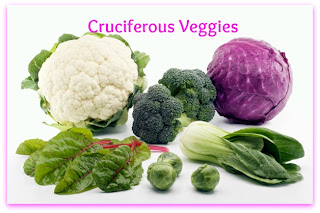“A Xeno-oestrogen
is a ‘fake’ or ‘synthetic’ hormone produced by the body in response to
environmental pollutants”
A woman’s body is delicately tuned to respond to all
oestrogen and oestrogen-like molecules ~ the hormone which governs our womanly
cycles, moods and reproductive wellbeing. In our severely developed and
technologically advanced environment we are constantly bombarded with chemicals
and signals which may act as a fake oestrogen in our bodies.
These synthetic compounds
are called Xeno-oestrogens, and even though some are now banned or are in the
process of being phased out they sadly remain within the food chain.
Xeno-oestrogens have been proven to be responsible for many disorders of the endocrine system.
Herbicides, Insecticides & Pesticides which are environmentally recycled
Dioxins
Phthalates which are used in plastics, cosmetics, medical apparatus, flooring and wall coverings
And they are responsible for the onset of a plethora of conditions.....
Early Puberty, Pre Menstrual Syndrome, Menstrual Cramps, Heavy Periods, PCOS, Uterine Fibroids,
Infertility, Auto-Immune disease, Thyroid disorders, several forms of Cancer and
hormone disruption in male development.
How do they do this?
By mimicking the effects of Oestrogen, competing with the naturally occurring and less damaging oestrogen and shifting the fragile balance of hormonal harmony between Oestrogen and Progesterone, and even Testosterone.There are ways to avoid the exposure to Xeno-oestrogens....
Eat more organic or chemical
free produce which has not been sprayed by pesticides, insecticides, herbicides
and fertilisers.
Even better – grow your own!Use paraben and phthalate free cosmetics and household cleaners. Read labels, and don’t go by what the manufacturer wants you to believe!
Switch off your WiFi and keep your mobile phone away from your body when not in use
Use alternatives to plastics such as glass or stainless steel, and avoid the use of cling wrap in microwave ovens
Be mindful of the quality and type of plastic toys your children are given or using – often they end up in the mouth being chewed and sucked on for hours every day
When you purchase new items for your children, such as mattresses, car-seats, even some clothing – wash or air them first.
Some foods contain naturally occurring oestrogens called Phyto-oestrogens (Isoflavonoids, Lignans) and many of these comprise part of a healthy balanced diet. Whilst they can bind to oestrogen receptors, their effect is thought to be far less intrusive than their synthetic Xeno-partners.
Scientists believe this is a result of humans co-evolving with many of the food plants that produce them.
These foods
include.....
Raw nuts & Omega Oil rich seeds such as flax, sesame, and sunflower
Grains - especially wheat germ, beans and legumes
Garlic and onions and fresh herbs
Cruciferous vegetables such as cabbage, cauliflower, Brussels sprouts and broccoli
Some fruits including apples, peaches, and watermelon
Alfalfa and red clover sprouts
Ensure that your diet has adequate fibre and filtered
water to allow the proper excretion of all metabolised hormones. Liver and
bowel function is paramount to a healthy hormonal system. If you are suffering
Hormone Disorders, think beyond the obvious as the reproductive system is part
of a huge bodily system relying on Neurological, Immune and Digestive
wellbeing.



0 comments:
Post a Comment